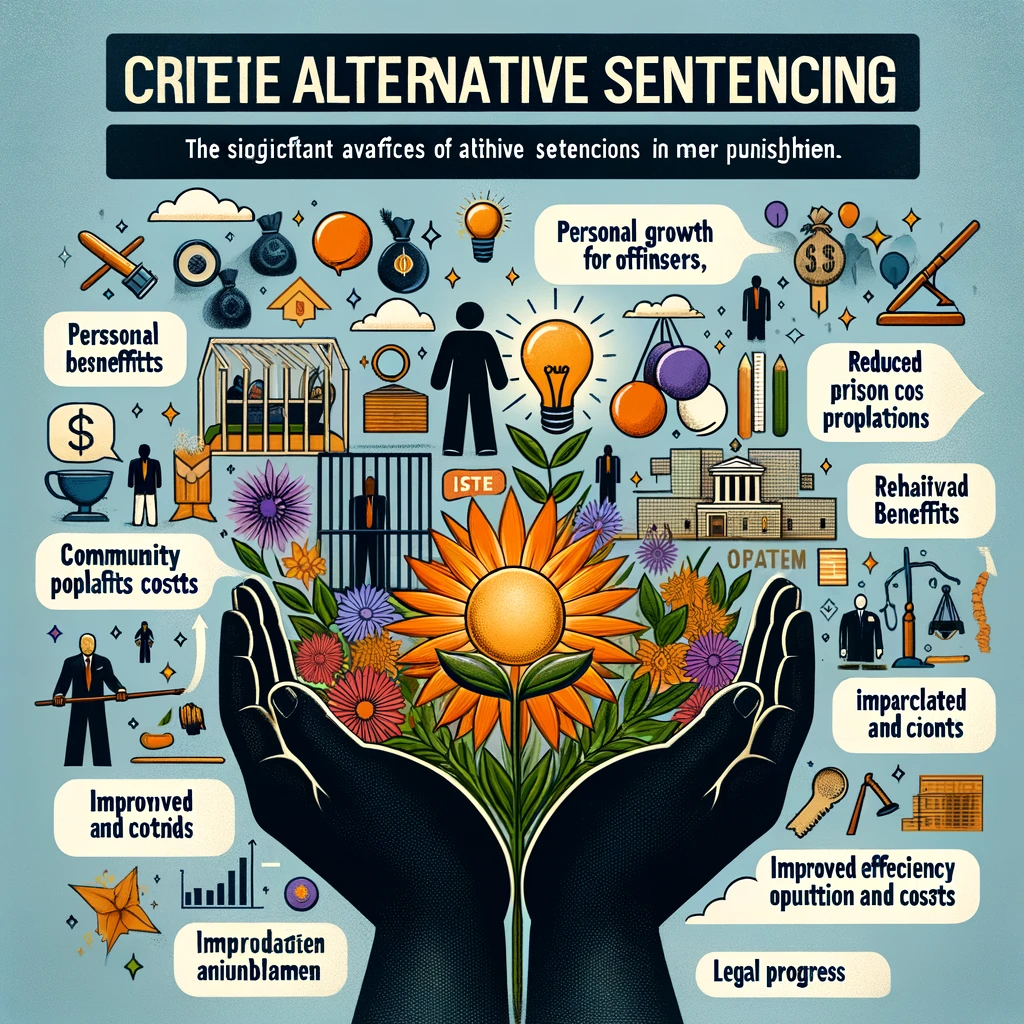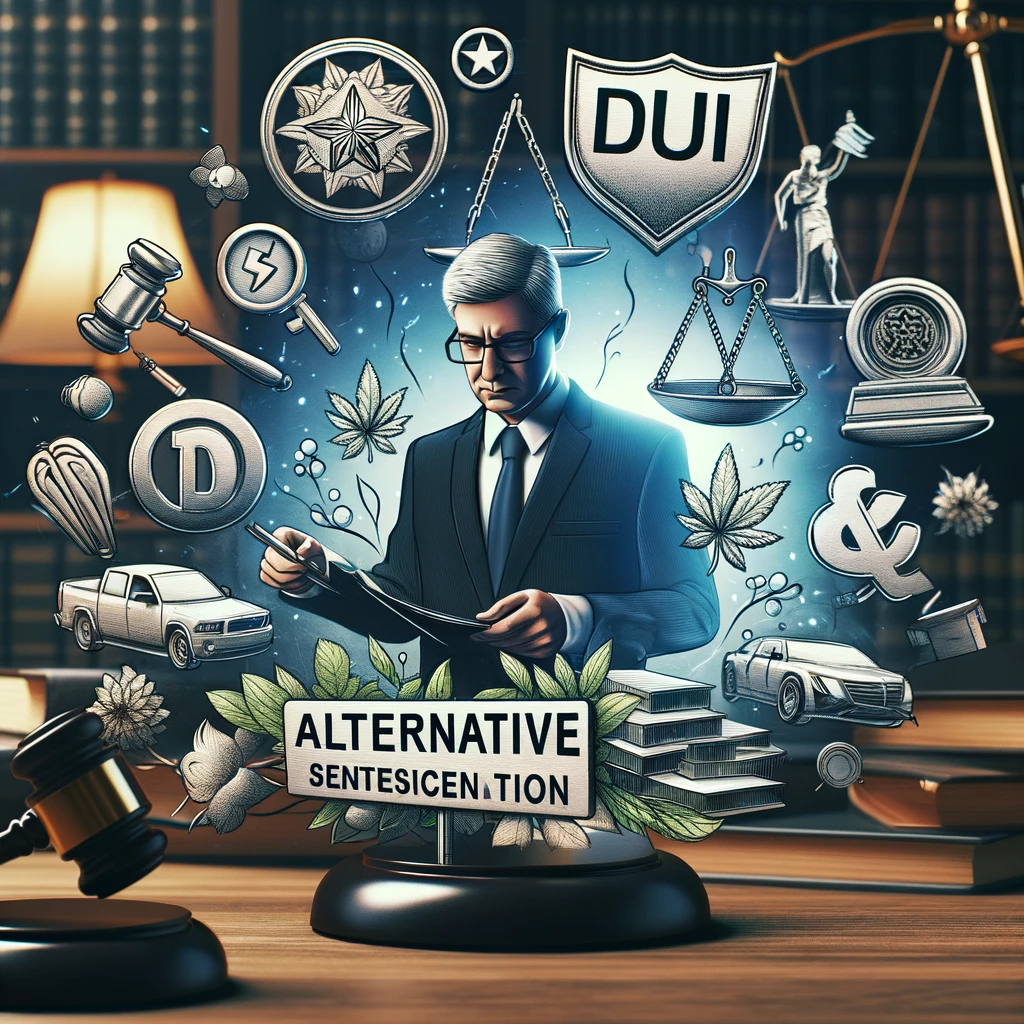
In the state of Texas, the approach to handling DUI offenses is evolving. Nowadays, the focus is increasingly on alternative sentencing options for DUI offenders in Texas. This new direction aims not just at punishing but more importantly, at rehabilitating offenders.
A Twist on Texas DUI Consequences
Imagine cruising down a Texas highway, the wind in your hair, music blaring from the speakers. Life feels good, right? But then, those flashing lights appear in your rearview mirror. Your heart sinks. It’s a DUI stop, and suddenly, the night takes a turn for the worse.
Now, let’s hit the brakes on the doom and gloom! Texas is changing gears when it comes to DUI offenses. Gone are the days when your only future seemed to be behind bars. Welcome to the world of alternative sentencing options for DUI offenders in Texas!
So, what’s the deal with these alternative sentencing options for DUI offenders?
They’re about turning a mistake into a moment of learning and growth. Think less time behind bars and more time rebuilding your life. Intrigued? There are compelling reasons to keep reading: discover how Texas is leading the charge in transforming lives, explore different paths away from incarceration, and find out if these alternatives could apply to you or someone you know.
We’ll steer through the scenic route of Texas law, unearthing the ins and outs of DUI consequences and the brighter horizons of alternative sentencing. Buckle up for an enlightening ride through the legal landscape of the Lone Star State!
Deep Dive into Texas DUI Laws
Understanding the basics of Texas DUI laws is crucial. In Texas, driving with a BAC above 0.08% is illegal. The consequences of DUI depend on several factors. These include the offender’s BAC level and their prior offenses. Penalties can range from fines and license suspension to imprisonment.
Unpacking Alternative Sentencing
Alternative sentencing breaks from traditional punishment methods. It addresses the root causes of DUI behavior. The goal is to rehabilitate the offender, not merely punish. This approach helps prevent future DUI incidents. It shifts from a punitive to a restorative justice model.
| Type of Alternative Sentencing | Description |
| Probation | Offenders remain free but under court supervision. Must follow specific conditions set by the court. |
| Community Service | Offenders contribute to the community through unpaid work, fostering personal growth and responsibility. |
| Alcohol Education Programs | Offenders attend classes focusing on the risks and consequences of alcohol misuse. |
| Electronic Monitoring | Offenders wear an electronic device to monitor their location and ensure compliance with curfews. |

Exploring the Alternatives
Texas offers a range of alternative sentencing options. Probation is a common choice, offering freedom under supervision. Community service connects offenders with the community positively. Alcohol education programs focus on the dangers of drinking and driving. Electronic monitoring ensures compliance without jail time. Each option aims to integrate the offender back into society responsibly.
Benefits That Speak Volumes
The advantages of alternative sentencing are significant. They offer personal growth opportunities for offenders. Communities benefit from reduced prison populations and costs. The overall legal system sees improved efficiency and outcomes. These programs aim to transform lives, not just punish.

Who Qualifies for Alternative Sentencing?
Eligibility for alternative sentencing varies. It generally depends on the offense’s nature and the individual’s history. Nonviolent first-time offenders are prime candidates. But, certain aggravating factors might disqualify some individuals. Understanding these criteria is key to navigating the legal options.
The Road to Alternative Sentencing
The journey to securing alternative sentencing is multi-faceted. It begins with acknowledging guilt and understanding the harm caused. An assessment follows, evaluating the offender’s suitability for various programs. Successful application to these programs is the final step toward alternative rehabilitation.
Real-Life Transformations
Consider the story of Sarah, a young woman from Dallas. After her DUI offense, she opted for a rehabilitation program. This program changed her perspective and behavior. Such real-life examples illustrate the transformative power of alternative sentencing.
Facing the Challenges Head-On
Despite its benefits, alternative sentencing faces hurdles. Availability and public skepticism are among the main challenges. Moreover, ensuring compliance and reducing recidivism remain significant concerns. Addressing these issues is essential for the system’s success.
The Crucial Role of Legal Advocacy
Legal representation is vital in the alternative sentencing process. A knowledgeable attorney can navigate the complexities of Texas DUI law. They advocate for the offender’s best interests. A good lawyer makes a significant difference in the outcome.

On the Horizon: Future Trends
The landscape of DUI sentencing in Texas is changing. Anticipated trends include more personalized sentencing options. Technology and data may play larger roles in tailoring rehabilitation programs. These developments promise a more effective and humane approach to DUI offenses.
In summary
Alternative sentencing options for DUI offenders in Texas represent a progressive and effective approach to handling DUI cases. By focusing on rehabilitation and reintegration, these options offer a path to a better future for offenders, while also benefiting society as a whole. As legal professionals, it’s our duty to stay informed and guide our clients through these options, ensuring they receive the support and representation they need to navigate the legal system effectively. This comprehensive guide serves as a resource for understanding the nuances of DUI law in Texas and the transformative potential of alternative sentencing.
Navigating New Roads
So, we’ve reached the end of our journey through the legal landscape of DUIs in Texas. And what a ride it’s been! From the daunting lights of a police cruiser to the light at the end of the tunnel with alternative sentencing options, we’ve covered some serious ground.
But what’s the takeaway from our little legal road trip?
Simply put: There’s hope on the horizon for DUI offenders in Texas. The state is shifting gears, moving from punitive measures to paths paved with redemption and rehabilitation.
Remember Sarah from Dallas? She took a wrong turn but found her way back through alternative sentencing for DUI offenders. Her story is a beacon for those feeling lost in the system. It’s a reminder that mistakes don’t define us; our actions afterward do.
As we park our conversation here
Think of this blog as your legal GPS. Maybe you or someone you know is navigating the tricky roads of DUI charges. Remember, in Texas, there are alternative routes available. Don’t be afraid to seek them out.
Keep this guide handy, share it with friends, and remember: No matter the detours, there’s always a way to steer your life back on course. Safe travels, and here’s to new beginnings on the wide-open roads of change!

Other Related Articles:
- Decoding DUI Regulations in Texas
- Texas Legal Perspectives on DUI
- Understanding DUI in Texas: Alcohol, Marijuana, and the Law
- DUI Expungement and Record Sealing In Texas
- Consequences and Legal Options: Probation Violation In the Texas Penal Code
- Alcohol Laws and Regulations in Texas
- The Making of Bentley’s Law
- Prescription Drug Fraud: Laws and Penalties In Texas
- The Collateral Consequences Of Drug Convictions In Texas
- Drug Court Programs: An Alternative To Jail
Frequently Asked Questions:
The odds depend on various factors including the evidence, your defense strategy, and your legal representation.
Examples include probation, community service, or participation in rehabilitation programs.
The length can vary widely based on the case specifics, but ranges from a few days to several years for severe offenses.
The most known alternative sentencing includes probation, community service, and drug or alcohol rehabilitation programs.

